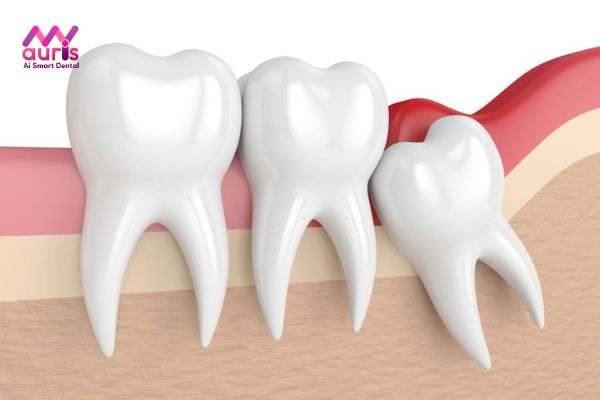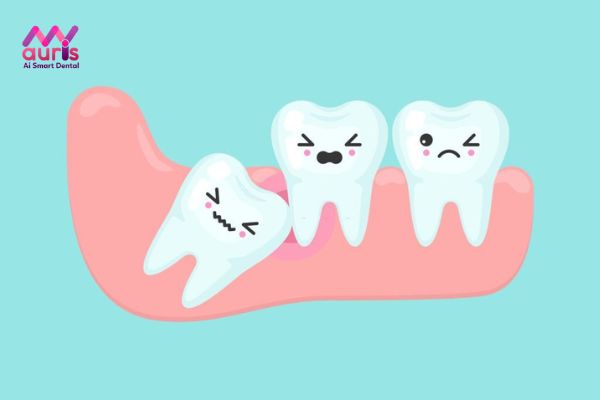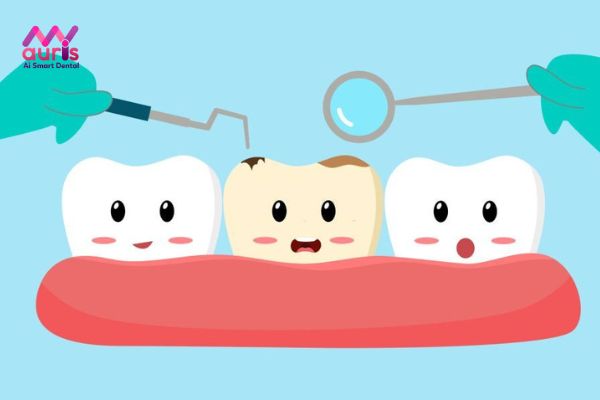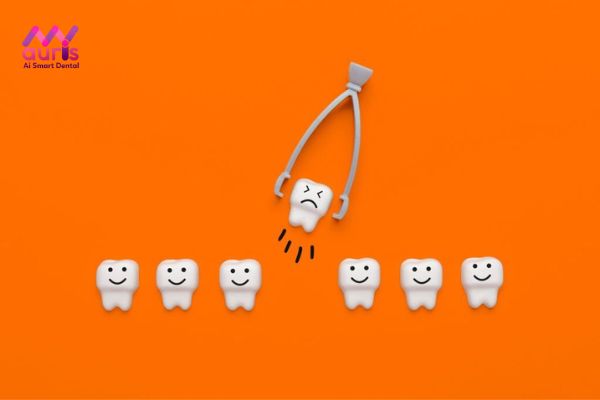Wisdom teeth is a word that is not unfamiliar to many people, but not everyone understands it clearly. So, what are wisdom teeth? Wisdom teeth are what number on the jaw? Which teeth are wisdom teeth? How many wisdom teeth are there? What is the function of wisdom teeth? These are questions that not everyone can answer. If you don’t know yet, let’s find out with us!
1. What are wisdom teeth? How many wisdom teeth are there?
Wisdom teeth are the name of the last teeth to grow. Similar to other teeth, wisdom teeth also have 4, 2 in the upper jaw and 2 in the lower jaw.
Wisdom teeth usually grow when the jawbone has stopped growing and developing. Therefore, you will not be able to see these teeth in young children, but they will only appear when you enter adulthood from 18 – 25 years old, or maybe later.

2. What number are wisdom teeth?
Wisdom teeth are tooth number 8, usually growing in the innermost position of the jaw, next to molar number 7. Because these are the last permanent teeth to grow, so when they emerge in the jaw, there is often not enough room for them. This can lead to teeth growing crookedly, pushing each other or crowding other teeth, leading to inflammation and pain for the patient.
In addition, there are some cases where wisdom teeth do not grow completely but grow underground under the gum tissue and poke into the roots of other teeth, causing the gums to swell and spread pain to adjacent teeth.

3. What is the function of wisdom teeth?
In fact, due to their late appearance when the remaining teeth have fully developed, the jaw bone is no longer growing, and when wisdom teeth “emerge” they no longer have a solid foothold on the jaw. Therefore, they must grow misaligned or occupy the space of other teeth (tooth number 7). And in this case, wisdom teeth cannot take on any role in terms of aesthetics or chewing function, so they are considered unimportant “extra teeth”.
In other words, wisdom teeth are also called “enemies” of many people because they bring a lot of trouble and pain. If they grow straight, in the right position, without tilting or poking into adjacent teeth, they will cause less pain and difficultyhuh. On the contrary, if wisdom teeth grow crooked, grow underground… without the intervention of a doctor to remove them, it will cause many complications for you such as:
-
Infection
Considered the most common complication when wisdom teeth grow. The gum area near the wisdom tooth is often swollen, creating favorable conditions for bacteria to penetrate and cause infection. When encountering this condition, patients often feel pain, discomfort, irritability, and in severe cases, pus flows from the area where the wisdom teeth grow.
In addition, if the infection is not treated promptly, it will spread to other tissues in the oral cavity environment such as the tongue, inner cheeks, etc., making the disease worse, negatively affecting the patient’s health and spirit.

-
Deep decay teeth
Tooth number 8 decay is also a common condition, especially teeth that grow horizontally. The reason is that they are not in the right position, some teeth even press on other teeth, causing food entering the body to stagnate between the teeth and around the roots of teeth that are not cleaned, making it easy for bacteria to attack, causing tooth decay. In addition, because the teeth grow in the innermost position of the jaw, it is difficult for the brush to penetrate deeply to clean, so they easily become a target for bacteria due to not being carefully cared for.

-
Adverse effects on other teeth
With small jaws, not enough room for wisdom teeth to grow straight, they often will tends to hit the base or body of the adjacent molar (tooth number 7). Therefore, this tooth is easily shaken and damaged, making it easy for bacteria to attack and cause tooth decay, and more seriously, the tooth pulp can be affected. If not detected and treated promptly, you may permanently lose tooth number 7.
4. Should wisdom teeth be removed or not?
Normally, when wisdom teeth begin to show complications such as swelling, inflammation, constant toothache, etc., the doctor will often prescribe removal to prevent the spread or spread to other areas of the teeth.
However, in not all cases wisdom teeth are required to be removed. They may be retained if:
- Teeth grow straight, normally like other teeth, and are not stuck to bone and gum tissue, so they will not cause complications or pain that affects the patient’s health. However, if they want to keep it, the patient needs to take care of their teeth and clean them thoroughly to protect their teeth as well as prevent the invasion of oral bacteria.
- For some patients with chronic diseases such as cardiovascular disease, bleeding disorders, diabetes… removing wisdom teeth is very dangerous, seriously affecting their health.

Understanding the location, role and effects of wisdom teeth will help you take appropriate oral protection measures. However, to know whether you should have wisdom teeth extracted when they begin to appear or not, a doctor’s examination is required. Furthermore, this is a dangerous procedure, requiring highly skilled doctors and the effective support of modern equipment, to ensure the wisdom tooth extraction process is safe and ensures the patient’s health. The best way is to go to reputable hospitals and dental clinics for advice, review, X-rays and tests to avoid unwanted risks.
Read more articles Where do wisdom teeth grow? When? How long? to understand more about the process of wisdom teeth growing and have the best preparation to avoid unwanted effects on your health!





